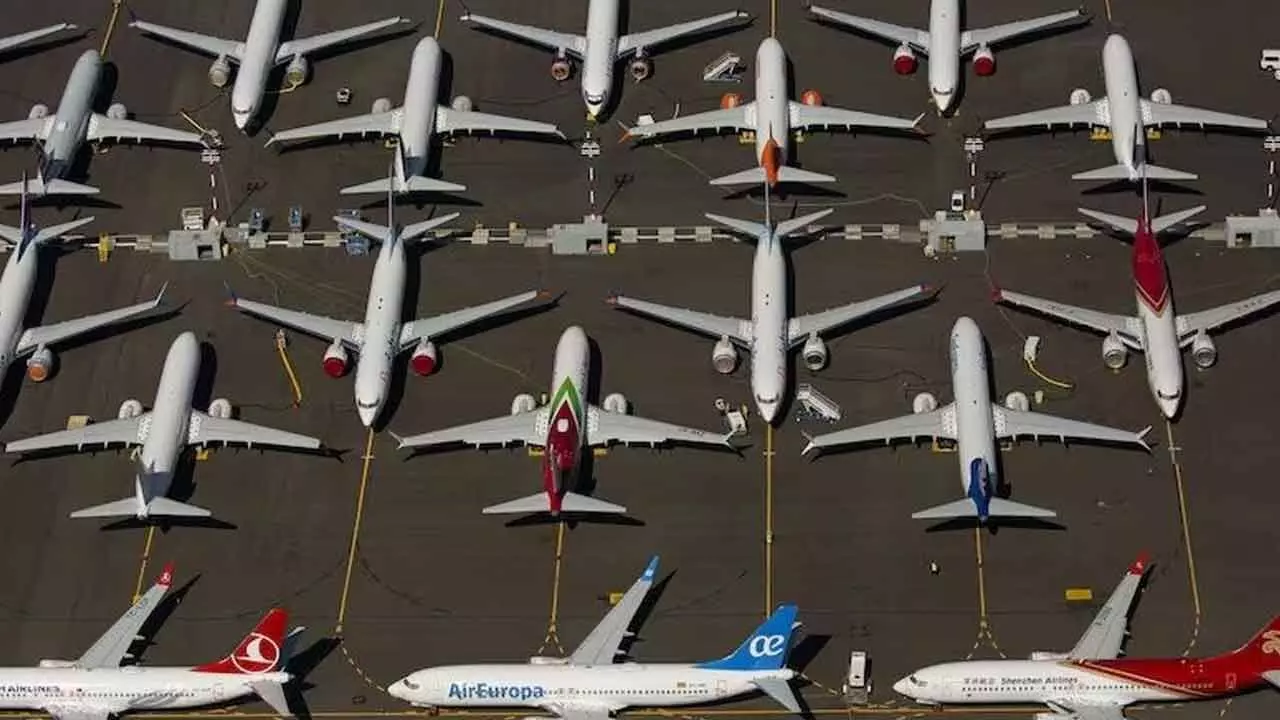Orders for aircraft reveal slow down as manufacturing hurdles continue
Orders for aircraft reveal slow down as manufacturing hurdles continue
Orders for aircraft reveal slow down as manufacturing hurdles continue

Air India's chief executive Campbell Wilson pointed to problems at aircraft seat-making companies as one of the reasons behind a slower pace of jet deliveries, on top of the challenges faced by engine-makers, Airbus and Boeing
The latest figures released by ADS Group (the UK trade association for the aerospace, defence, security and space sectors) at FIA 2024 estimate that overall of £81.5bn in deals has been signed during the airshow with 260 firm commercial aircraft orders, the event organisers said at the end of the show. These will benefit the UK economy by at least £13bn with Aimie Stone, ADS’ Chief Economist, saying this highlights “industry’s confidence, resilience and buoyancy.” Included in these deals are 260 firm aircraft orders worth £6.4bn alone for the UK and 808 firm engine orders worth at least another £1.2bn to the UK at current prices.
The number of commercial aircraft orders at the Farnborough International Airshow is lower compared with a rush of post-pandemic deals at the Paris Airshow last year.
Airbus overtook its arch-rival Boeing with a last-minute order to take the total to 164 aircraft orders and commitments – pulling ahead of its US competitor who took 96 orders and commitments plus 22 options.
However, Airbus' order tally is significantly below the 846 orders it scored during the Paris Air Show in 2023, when major deals from Indian carriers swelled its total.
Boeing's order tally of 96 aircraft at Farnborough falls short of the 356 orders it won at the Paris Airshow in 2023.
"Widebody orders were strong at Farnborough, tallying a total of 41 firm orders ($5.8 billion value) versus 18 a year ago at the Paris Airshow 2023 ($2.7 billion value," an official said.
Narrowbody orders placed at Farnborough struggled ... as Boeing and Airbus weren’t likely to make deals for jets, which have plenty of backlog and the largest supply chain headaches."
Global airline chiefs expressed frustration at ongoing jet delivery delays during Farnborough in the UK this week, with some projecting that the shortage of Boeing and Airbus aircraft will continue for at least two years, as supply chain snarls show no signs of easing.
Air India's chief executive Campbell Wilson pointed to problems at aircraft seat-making companies as one of the reasons behind a slower pace of jet deliveries, on top of the challenges faced by engine-makers, Airbus and Boeing.
Boeing’s new head of commercial aircraft Stephanie Pope told a media briefing that 737 Max production was improving and the company was undergoing "transformational change" in its safety and quality culture.
In other corners of the airshow, there was a lot of focus on electronic vertical take-off and landing (eVTOL) aircraft as a number of air taxi makers, including Embraer’s Eve, Joby and Boeing-backed Wisk, showed off their prototypes, while a few announced deals and new developments.
The Spanish eVTOL company Crisalion announced a pre-order deal with Dubai's Air Chateau for 10 of its 16-rota Integrity aircraft.
“The Middle East is a critical market for us, we have a strong presence there – lots of mobility things are happening there,” Oscar Lara, chief operating officer at Crisalion, said.
Sustainability was a major theme at this year’s Farnborough International Airshow, with several panel discussions on how the aviation sector can reach net-zero targets, given that much of the industry is often described as "hard-to-abate".
Several chief sustainability officers in the aerospace and defence industry said while carbon reduction strategies on the part of aircraft makers and airlines were very necessary, investment and development of carbon removal processes and technologies were essential.
A new Labour government, with a fresh energy and new vision made for a highly positive Farnborough this year – particular in respect of strengthening old partnerships and forging new ones with international partners – particularly in military and spaceflight. Both Germany and Japan came to the fore this week – Japan with GCAP and Germany with the new British governments security partnership – which potentially could include cooperation in military aerospace.
In the civil field, orders were perhaps lower than some might have predicted, but both Airbus and Boeing carriers are laser-focused at the moment on delivery and in Boeing’s case, rebuilding shattered trust and strengthening its safety culture. With the big two having a somewhat subdued show, it was left to ATR and De Havilland Canada.
Finally – Brazil’s Embraer also secured a deal for nine C-390s from Austria and Netherlands and six Super Tucanos for Paraguay – making for the biggest military contract announced at the show. Another major deal, reflecting how nations are ramping up rearmament, was a £6.5bn 10-year contract to missile maker MBDA to accelerate the deliveries and development of complex weapons such as Storm Shadow, Brimstone, and Meteor.

